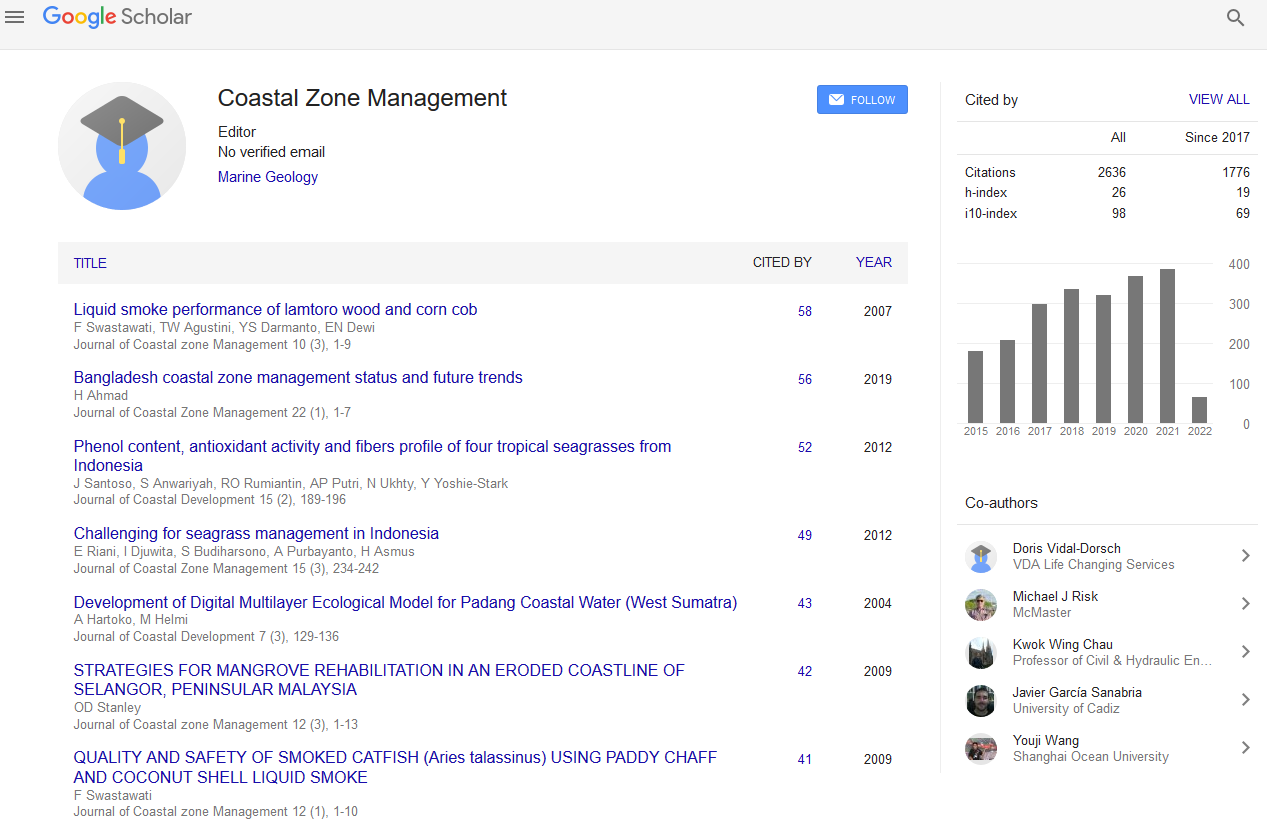Indexed In
- SafetyLit
- RefSeek
- Hamdard University
- EBSCO A-Z
- OCLC- WorldCat
- Publons
Useful Links
Share This Page
Journal Flyer

Open Access Journals
- Agri and Aquaculture
- Biochemistry
- Bioinformatics & Systems Biology
- Business & Management
- Chemistry
- Clinical Sciences
- Engineering
- Food & Nutrition
- General Science
- Genetics & Molecular Biology
- Immunology & Microbiology
- Medical Sciences
- Neuroscience & Psychology
- Nursing & Health Care
- Pharmaceutical Sciences
Potentiality of microorganisms to degrade toxic hydrocarbons from contaminated marine ecosystem
2nd International Conference on Coastal Zones
July 17-18, 2017 Melbourne, Australia
Sandeep Pandey
Awadhesh Pratap Singh University, India
Posters & Accepted Abstracts: J Coast Zone Manag
Abstract:
The oil spill has always raised serious concerns about the likely environmental impact on the inshore waters and shores of the marine environment. The leaked crude oil contains toxic compounds which have both the physical and chemical impacts on marine organisms-plants and animals from smallest plankton to macro planktons to largest aquatic animals. Techniques have been developed to minimize the toxicity but they are expensive and can lead to incomplete decomposition of contaminants. The biotechnological approaches like bioremediation have proved promising with potentiality to reduce toxicity and are cost-effective. Microorganisms like bacteria, yeast, fungi have efficiency to degrade hydrocarbons. Bioaugmentation and Biostimulation techniques with ability to modify microbial population have helped in detoxification in aquatic environment. The potentiality of microorganisms to degrade the toxic hydrocarbons has been clearly understood and practically proven. This research presents an updated overview of scientific phenomenon that undergoes during degradation of toxic hydrocarbon components under sea water ecosystem.

